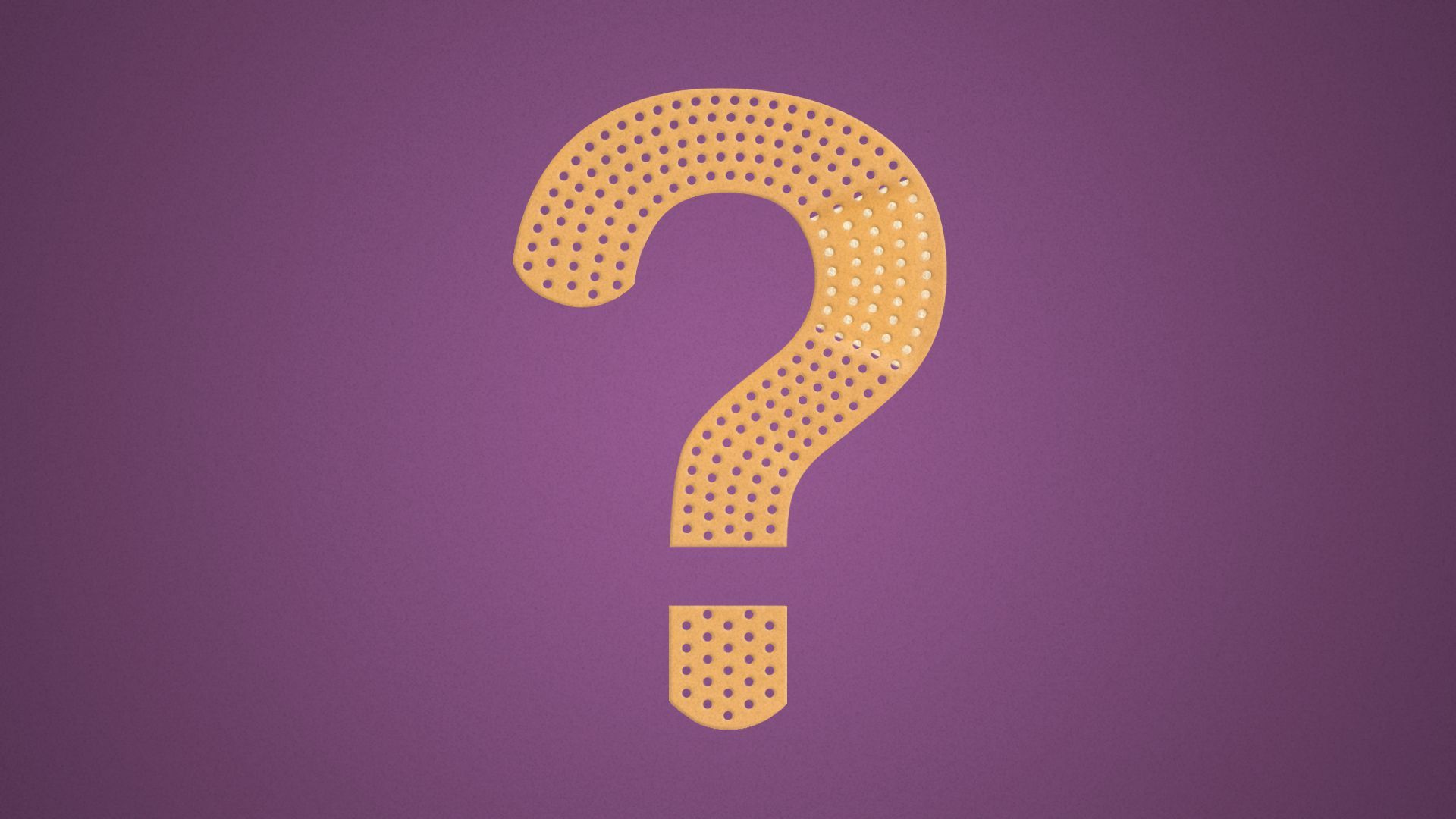Data holes could complicate Moderna and J&J booster shot process
Add Axios as your preferred source to
see more of our stories on Google.

Illustration: Megan Robinson/Axios
Deciding which Moderna and Johnson & Johnson coronavirus vaccine recipients should get booster shots may end up being even messier than the process for Pfizer recipients was.
Why it matters: More Americans may very well need another round of shots, particularly older people and those who received J&J's one-dose vaccine. But regulators had issues with the quantity of data available for boosting with Pfizer, and there's even less — at least publicly available at this time — for the other two vaccines.
The big picture: The U.S. has relied heavily on other countries' data when it comes to making booster decisions, particularly Israel.
- Israel provided real-world data on the effect of booster shots, as it began giving them to some people well before the U.S. did. But this data was only for the Pfizer vaccine.
- "If we had the U.S. national data, the whole country, or even just all health care workers, we would have this nailed. But we have such poor data aggregation in this country," said Eric Topol, executive vice president of Scripps Research.
- "We don't have an Israel for Moderna or J&J, and that’s really unfortunate," Topol added.
Between the lines: There are two broad kinds of data relevant to the booster process: data on the original dose's effectiveness over time, and data on a booster shot's effectiveness. The latter is more problematic.
- An FDA advisory committee ended up significantly narrowing its Pfizer booster recommendation from what the company had originally requested, saying there wasn't enough data to justify a third shot for all adult age groups.
- That was with the real-world Israeli data, in addition to data submitted by the company.
- This same committee will review the Moderna and J&J data, potentially in a matter of weeks. It's unclear what data the companies will have submitted to the FDA by then, or what international data will then be available.
- "The problem is it's extrapolating from lots of data sets of the waning without the proof that the booster restores effectiveness," Topol said. "And we have a bunch of purists on these committees that don't like to do a lot of extrapolation."
Where it stands: Moderna has asked for authorization of a third shot for its recipients, but with a dose half the size of the original two.
- J&J recently put out a press release outlining results from its clinical trials evaluating a second shot two and six months after the first.
- But it's unclear whether the full six-month data will be available by the time the FDA reviews J&J boosters, according to a source familiar with discussions. A second source familiar with the situation said the full clinical trial results of a second J&J dose after six months aren't expected until early November.
- That could be problematic, as six months is more reflective of the gap between doses most J&J recipients would have. "Most of those people who got the one-shot and done — they're well past two months right now," Topol said. "So what does this mean?"
- J&J declined to comment.
Yes, but: Even if regulators end up having less data to consider — which is still a big if — it may not matter that much to the outcome.
- "It’s almost unimaginable now that they won't approve additional Moderna and J&J doses. That'd add more chaos to whats been a pretty anarchistic situation over the last few months," said Cornell virologist John Moore.
The bottom line: If regulatory bodies met today to decide on boosters for Moderna and J&J recipients, they'd have less data to work with than they did a couple of weeks ago — and that could be a big problem.
